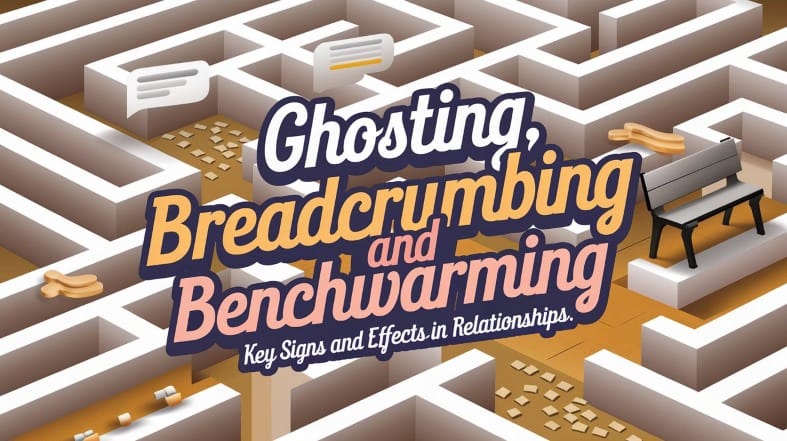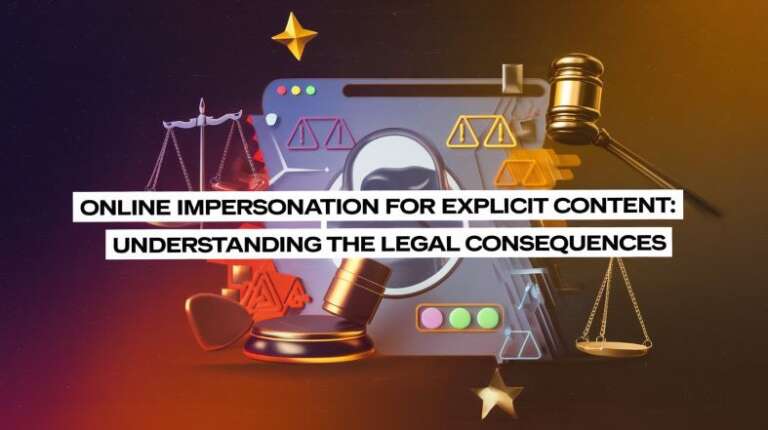In today’s dating world, navigating relationships can feel like walking through a maze, especially when faced with confusing behaviours like ghosting, breadcrumbing, and bench warming. These terms describe actions that leave many of us feeling anxious, doubting our self-worth, and searching for clarity. For many of us who have waited anxiously for a reply that never came or felt led on without any real commitment, these behaviours are all too familiar.
These kinds of things are very annoying in the current dating climate, as how easy is it to just tell someone you are not that into them, rather than leave them hanging.

Ghosting refers to abruptly cutting off all communication without explanation after engaging in a relationship, leaving the other person confused. Breadcrumbing is when someone sends sporadic messages to keep another person interested without any intention of deepening the connection, while benchwarming means keeping someone as an option while pursuing other interests actively.
Ghosting: The Silent Disappearance
Ghosting can often be likened to a sudden disappearance act where one person simply vanishes from the relationship scene without any warning. This can feel incredibly jarring for the one left behind, who may be caught in a whirlwind of confusion and anxiety. One moment, we might be sharing deep conversations, making future plans, or enjoying each other’s company, and then—silence. Suddenly our messages go unanswered, calls are ignored, and we are left wondering what went wrong.
It’s important to understand that ghosting is not just a simple act of stepping back; it’s an abrupt end that leaves us grappling with feelings of rejection and self-doubt.
Since ghosting is contextually dynamic, it helps to recognize both the signs of being ghosted and managing its aftermath.
The Signs of Being Ghosted
Recognizing the signs that we are being ghosted can help mitigate some emotional turmoil. If conversations suddenly drop off, messages turn from warm and engaging to cold and distant, or if our partner starts making excuses to avoid meeting up, these can be red flags. Often, we cling to hope that there’s simply been a misunderstanding or that our partner will return.
However, when these patterns persist, clarity on whether we’re being ghosted allows us to shift our focus from uncertainty about the relationship to making decisions about moving forward.
But how do we cope with the emotional impact after we have been ghosted?

Coping with Ghosting
Healing from ghosting involves more than just accepting the silence. It requires us to process the emotions attached to that experience. We may need to remind ourselves that ghosting often speaks volumes about the other person’s shortcomings rather than any flaws within ourselves.
Establishing a support network of friends or trusted confidants who can validate our feelings can provide much-needed comfort during such tough times.
Taking action is equally essential; journaling can help articulate feelings while participating in activities that bring joy promotes healing. Over time, we learn to reclaim our agency and reestablish trust in our ability to connect with others.
Remember, our worth is not defined by someone else’s inability to communicate openly. Reframing those thoughts is key in finding closure and moving forward gracefully after experiencing ghosting.
As unsettling as ghosting can be, filtering through its effects equips us with greater insight into maintaining healthier connections in future relationships. With this understanding, we can tackle the next crucial aspect—navigating the complexities that arise when faced with such treatment from others.
Handling Ghosting Situations
Discovering that we have been ghosted often leaves us feeling lost, confused, and vulnerable. It’s important to remember that while this experience can be painful, it also offers an opportunity for growth and self-reflection. By embracing our emotions and taking constructive steps, we can navigate through the haze of ghosting with dignity.
Step-by-Step Guide
Step I – Acknowledge Our Feelings
The first step is to validate our feelings. When we realize we’ve been ghosted, it’s completely natural to experience a whirlwind of emotions—ranging from anger and confusion to sadness and even relief. Allowing ourselves to acknowledge these feelings instead of suppressing them is crucial. We can take a moment to sit with these emotions, perhaps journaling about them or discussing them with trusted friends, which can help clear our headspace.
Step II – Seek Closure Independently
Next, we must accept the likely reality that we may never receive the answers we desire from the person who ghosted us. This acceptance is vital for our emotional healing. To create our own closure, we might consider writing down our thoughts and feelings in a journal or articulating them in a letter—one that we don’t necessarily need to send. This act can serve as a powerful means of processing our experience.
Step III – Focus on Self-Care
Finally, as we navigate this tricky terrain, focusing on self-care becomes critical. Instead of allowing ourselves to dwell on unanswered texts or checking our phones repeatedly, we could engage in activities that uplift us. This may include exercising, meditating, or immersing ourselves in hobbies that ignite joy and passion. By redirecting our energy towards positive endeavors, we fortify our mental well-being and ensure we’re nurturing ourselves during a challenging time.
Transitioning from the emotional aftermath of being ghosted emphasizes the importance of understanding other unhealthy relationship dynamics that may reflect similar behaviors. Exploring these themes can provide insight into how patterns like leading someone on without commitment affect individuals just as profoundly.
Breadcrumbing: Leading On Without Commitment
At its core, breadcrumbing is like tossing out breadcrumbs to a bird, enticing it to come closer without any intention of letting it in. It keeps us hooked while the other person remains comfortably distant, all with sporadic messages that can ignite hope but never materialize into anything tangible. It’s maddening because we often find ourselves questioning where we stand, trapped in an emotional limbo that can be both confusing and draining.

Recognizing the Signs of Breadcrumbing
The first step toward understanding breadcrumbing is recognizing its signs. We might find ourselves receiving bursts of communication on some days — sudden texts filled with enthusiasm or playful emojis — only to be met with silence for days or even weeks afterward. This inconsistency can leave us with a sense of unease, making our minds race as we replay their last message over and over, trying to decipher what it really means.
Inconsistent Communication
Think about those moments when they bombard us with texts one minute, making us feel important and special, only to vanish entirely the next. An intimate discussion can quickly turn into a ghost town without explanation. It’s as if we’re on a rollercoaster of emotions, oscillating between excitement and disappointment.
Vague Plans
Another classic hallmark of breadcrumbing is the art of vague planning. They might enthusiastically suggest meeting up or going on an adventure but fail to provide any concrete details or follow through on these plans. Each tentative invitation leaves us hanging, creating an illusion of connection without the substance necessary for a fulfilling relationship.
Mixed Signals
As if that weren’t enough, we often encounter mixed signals from them. Their words may paint a picture of genuine interest; they compliment us, mention future plans together, and express admiration. However, their actions are often at odds with these declarations — leaving us confused and clinging to the faint hope that maybe things will change.
Recognizing these patterns is vital not just for our emotional well-being but also for reclaiming our personal power in relationships. As we navigate these complexities, addressing the impacts and strategies for better handling such situations becomes essential in moving forward effectively in our lives.
Coping with Breadcrumbing
Coping with breadcrumbing demands a conscious effort to safeguard our emotional well-being. Developing effective strategies is essential because we must avoid falling into a cycle of false hope and uncertainty. Each action we take not only sets a tone for how we want to be treated but also reaffirms our worth in a relationship. This journey begins with clear boundary setting, as it becomes an indispensable tool against misleading intentions. By expressing what we desire clearly, we empower ourselves and encourage others to respect our needs.
Effective Strategies
- Set Clear Boundaries:
It’s crucial to communicate openly about what we’re seeking in any relationship. When we lay out our expectations—including discussions about commitment, frequency of communication, or emotional availability—it illuminates the relationship dynamics. For example, if we express that we seek a more serious connection and find the other party is not willing, we’ll know early on whether to invest our energy further or step back. - Limit Communication:
To protect ourselves from continued disappointment, it’s wise to reduce the investment of time and emotional energy in individuals who exhibit breadcrumbing behaviors. Prioritizing interactions with those who reciprocate our interest improves our relationships and enhances our overall emotional wellness. This approach shifts the focus onto people who genuinely value us, creating a stronger support system. - Seek Validation Elsewhere:
Surrounding ourselves with supportive friends and family becomes pivotal during these times. Investing in strong relationships helps us find validation outside of the inconsistent communication that often accompanies breadcrumbs. Encouraging open conversations with loved ones allows us to share our feelings honestly, reducing the emotional burden breadcrumbing brings. - Self-Reflection:
Finally, self-reflection is where real transformation starts. Taking the time to evaluate why we permit this behavior in our lives can reveal layers of understanding about ourselves; it challenges us to confront issues such as low self-esteem or fear of being alone. By acknowledging our own worth and understanding what we truly need in a relationship, we allow ourselves the opportunity for growth and attract healthier connections.
As we integrate these strategies into our daily lives, healing can occur through better boundaries and emotional nurturing. This journey toward understanding will lead us closer to recognizing how being sidelined impacts our relationships and personal growth.
Benchwarming: The Back-Up Plan
Benchwarming isn’t just a casual situation; rather, it can become a profound emotional burden. When someone keeps us as a backup option, it typically involves a constant roller coaster of hope and disappointment. This person dangles potential love and commitment just out of reach, while we find ourselves waiting in uncertainty, wondering if we mean more than a placeholder in their life’s lineup.
This behavior subtly erodes our self-esteem over time, creating feelings of inadequacy. We often ask ourselves questions like, “Why am I not good enough for them to fully commit?” or “Am I simply not worth their time?” Yet the reality is that this dynamic has little to do with our worth and everything to do with their inability to make decisions about relationships. This creates an emotional limbo where we’re valued only for convenience rather than genuine connection.
To better understand how benchwarmers feel, consider these symptoms:
- Insecurity: Constantly questioning one’s value.
- Frustration: Annoyance at lack of progress within the relationship.
- Uncertainty: Lack of clarity about one’s standing in the relationship.
- Emotional Exhaustion: Feeling drained from trying to interpret mixed signals.
The next step is to validate our own feelings strategically. It helps to acknowledge that being benched is neither a personal flaw nor a reflection of who we are but rather an indicator of someone else’s hesitations or desires for convenience. Understanding this distinction allows us to regain power over our experiences.
By having open conversations with those we feel are “benching” us, we can express our needs clearly. For instance, saying something like, “I appreciate your interest, but I’m looking for someone who shares a similar level of commitment,” can set much-needed boundaries. Although it may be uncomfortable, bringing attention to bench-warming behavior helps clear the air and encourages accountability.
Establishing boundaries can help free us from the bench and move onto the playing field of authentic connection. Recognizing these patterns prompts a deeper understanding of how they influence our emotional well-being and guides us toward healthier relational dynamics.
Recognizing Toxic Relationship Patterns
It’s essential that we familiarize ourselves with common signs of toxicity in our relationships. By identifying these patterns early on, we can better safeguard our hearts and make informed choices about our connections with others. Recognizing red flags allows us to set boundaries before becoming emotionally entangled, saving us from unnecessary heartache.
Red Flags
When examining toxic relationships, several red flags signal something is amiss. One significant indicator is emotional inconsistency. Picture a situation where our partner fluctuates between warmth and distance; one moment they seem deeply interested, while the next they pull away without explanation. This inconsistency breeds confusion, leaving us unsure of where we stand in their lives. The mixed signals can lead to heightened anxiety and self-doubt, causing us to question our own worth.
Beyond emotional inconsistency, there are other behaviors that might raise alarms.
Another prevalent sign is a lack of effort. This occurs when one partner consistently fails to initiate contact or make plans, making the other feel unvalued or neglected. Relationships require mutual investment: if we find ourselves as the sole pursuer, it’s crucial to reassess whether the relationship holds true potential or has strayed into benchwarming territory.
As we reflect further on these patterns, it’s important to consider how manipulation affects our sense of self.
Emotional manipulation is perhaps one of the more insidious red flags. It may manifest through guilt trips or veiled threats that seek to control our actions and feelings. For instance, a partner might express disappointment over our decisions in such a way that makes us feel obligated to conform to their wishes. Recognizing this behavior early can be pivotal; understanding that manipulation stems from their insecurities helps us detach from its control.
The Importance of Self-Awareness
Cultivating self-awareness is vital in navigating these toxic patterns. We must remain attuned to how interactions make us feel—do they inspire joy or anxiety? Journaling our experiences can reveal consistent themes in how we’re treated over time. Observing these interactions objectively enables clearer assessments about the relationship’s trajectory and maintains our emotional health.
“Someone disappearing on you doesn’t reflect your worth: It reflects their fear of being ‘seen’.” – Natalie Lue.
As we navigate the complex world of relationships, keeping these signs in mind empowers us to prioritize self-care and pursue healthier connections moving forward.
In recognizing these toxic patterns and understanding their effects, we arm ourselves with the knowledge needed to foster healthier relationships and protect our well-being.
Why do some people choose to benchwarm instead of pursuing a serious commitment?
Some people choose to benchwarm rather than pursuing a serious commitment due to fear of vulnerability and the potential for emotional pain. A study from 2022 found that nearly 60% of individuals who engage in benchwarming cite a desire to keep their options open as a primary reason, fearing that commitment might lead to loss of identity or independence. This phenomenon often stems from previous negative experiences in relationships, leading individuals to prefer the safety of casual connections over the complexities of a committed partnership.
How can you identify if someone is ghosting you in a relationship?
To identify if someone is ghosting you in a relationship, look for sudden and unexplained changes in communication; if they stop responding to texts or calls without any prior warning or reason given, they may be ghosting you. A 2020 survey revealed that about 25% of people have reported being ghosted at least once, highlighting how common this behavior has become in modern dating. If your partner becomes increasingly unavailable or fails to engage in plans you’ve made together, it’s a strong indicator that they might be pulling away without explanation.
What strategies can someone use to avoid getting caught in a benchwarming situation?
To avoid getting caught in a benchwarming situation, it’s crucial to communicate openly about expectations and intentions with potential partners from the beginning. Setting clear boundaries and actively engaging in the relationship can help ensure both parties are on the same page. Research suggests that 75% of individuals prefer direct communication regarding relationship status, which significantly reduces misunderstandings and feelings of being sidelined. Additionally, prioritizing self-awareness and recognizing your own worth can empower you to leave situations where you’re not fully valued, thereby avoiding benchwarming altogether.
What psychological impact do breadcrumbing tactics have on individuals while dating?
Breadcrumbing tactics can lead to significant psychological impacts on individuals, including feelings of insecurity, anxiety, and low self-esteem. These tactics create a cycle of hope and disappointment, as the recipient clings to sporadic attention while feeling unworthy of genuine commitment. Research indicates that such emotional manipulation can result in increased levels of stress and dissatisfaction in romantic relationships, with nearly 30% of individuals reporting feelings of confusion and inadequacy when subjected to these behaviors. Ultimately, breadcrumbing undermines trust and can lead to long-term emotional distress.
How can you effectively confront someone who is ghosting or breadcrumbing you?
To effectively confront someone who is ghosting or breadcrumbing you, approach the conversation directly yet calmly, expressing your feelings about their behavior and the uncertainty it creates. Use “I” statements to communicate how their actions affect you without sounding accusatory, which can lead to a more constructive dialogue. Research suggests that clear communication can often resolve ambiguity in relationships; a survey by the dating site Bumble found that 70% of respondents preferred direct conversations over being left in the dark. By standing up for yourself and seeking clarity, you not only empower yourself but also encourage healthier communication patterns.








Leave a Comment